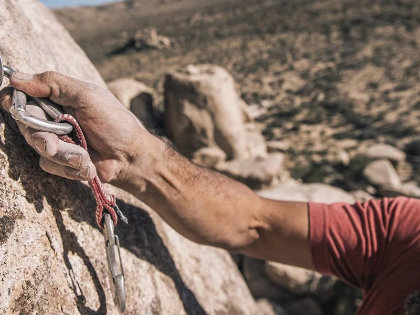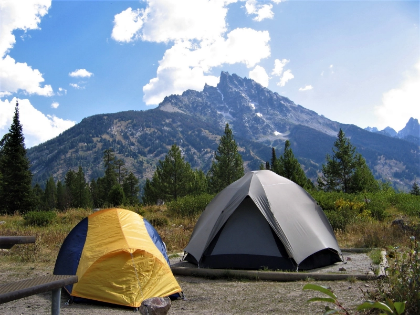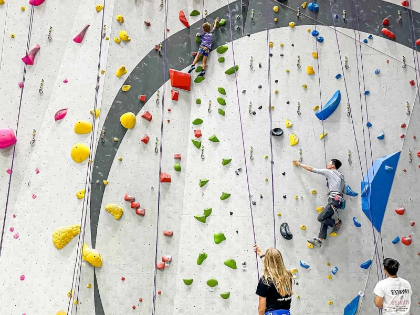Can I Start Climbing at 35?
All ages now love climbing, which has grown in popularity over the past few years. Nothing prevents you from starting climbing at age 35, as long as you have the right instructions and adhere to safety regulations. Everybody can climb the introductory routes found in most climbing gyms. You will see progress very rapidly, even if you have never climbed before.
Age is not relevant.
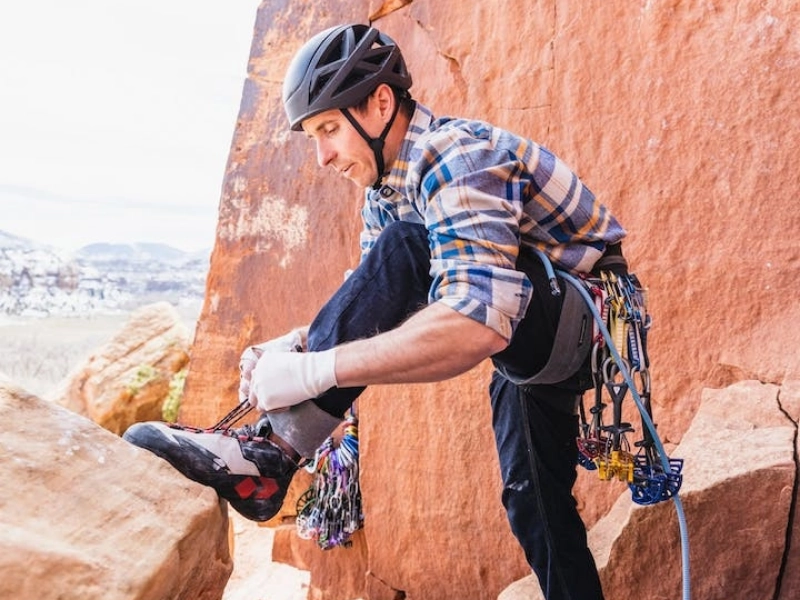
You can't bounce back like a kid.
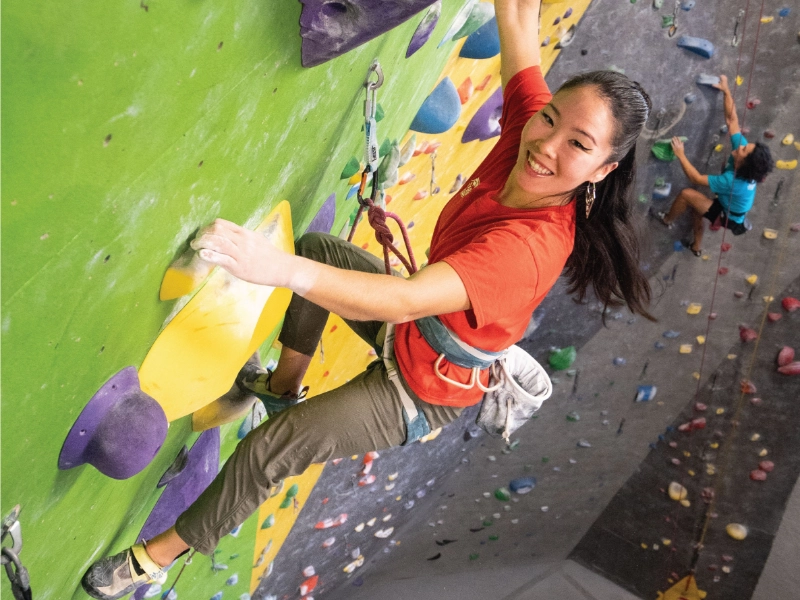 You will lose some of your climbing speed as you get older. But with enough practice and dedication, you can regain it. Older climbers are more likely than younger climbers to have injuries, which is a serious problem. Fortunately, climbing is a sport that people of all ages can participate in, but it's crucial to respect your body's limits.
A hurting finger or a crunchy sensation in your joint can be minor injuries, but more catastrophic ones, such as ligament rips, can also occur. It's critical to be aware of your body's signals of overuse, which include changes in breathing rhythm or a lack of strength on the wall.
Unlike the majority of traditional sports, climbing emphasises skill and movement over raw strength. This makes it a fun and safe pastime for individuals of all ages. Quite a few of the most accomplished climbers are, in fact, well into their forties.
You will lose some of your climbing speed as you get older. But with enough practice and dedication, you can regain it. Older climbers are more likely than younger climbers to have injuries, which is a serious problem. Fortunately, climbing is a sport that people of all ages can participate in, but it's crucial to respect your body's limits.
A hurting finger or a crunchy sensation in your joint can be minor injuries, but more catastrophic ones, such as ligament rips, can also occur. It's critical to be aware of your body's signals of overuse, which include changes in breathing rhythm or a lack of strength on the wall.
Unlike the majority of traditional sports, climbing emphasises skill and movement over raw strength. This makes it a fun and safe pastime for individuals of all ages. Quite a few of the most accomplished climbers are, in fact, well into their forties.
As you get older, building muscle becomes more challenging.
 The ability to employ one's full body's strength, balance, and hand-foot coordination are all necessary for climbing. Maintaining mental acuity while attempting to address an issue is also beneficial.
It's crucial to begin slowly and allow enough time between sessions for your muscles—particularly the tendons in your hands and fingers—to heal. However, if you take things gently and concentrate on the appropriate kind of exercise, there's no reason why you can't get incredibly powerful as you age.
Instead of depending solely on raw physical force, most climbers who reach the highest levels of proficiency do so by honing their technique and picking up sophisticated movement capabilities. Furthermore, compared to many other sports, the low-impact movement is far easier on the joints. Because of this, it's an excellent pastime for those who are past their prime but still want to be active and fit. It's also an enjoyable approach to pushing oneself in a positive setting.
The ability to employ one's full body's strength, balance, and hand-foot coordination are all necessary for climbing. Maintaining mental acuity while attempting to address an issue is also beneficial.
It's crucial to begin slowly and allow enough time between sessions for your muscles—particularly the tendons in your hands and fingers—to heal. However, if you take things gently and concentrate on the appropriate kind of exercise, there's no reason why you can't get incredibly powerful as you age.
Instead of depending solely on raw physical force, most climbers who reach the highest levels of proficiency do so by honing their technique and picking up sophisticated movement capabilities. Furthermore, compared to many other sports, the low-impact movement is far easier on the joints. Because of this, it's an excellent pastime for those who are past their prime but still want to be active and fit. It's also an enjoyable approach to pushing oneself in a positive setting.
It's riskier to sustain an injury.
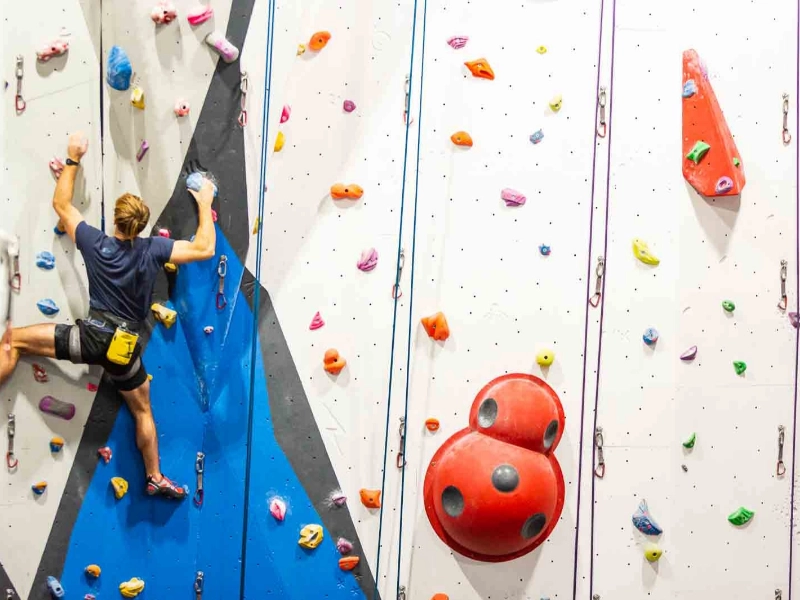 People of all ages are heading to the wall in the fascinating world of climbing. It's a sport that demands strength and endurance, which makes it a fantastic social activity in addition to being a great kind of workout.
For elderly climbers, injuries might be extremely dangerous. However, they can be completely avoided with the appropriate strategy. Before beginning any climbing exercise, it is imperative to spend the necessary time to warm up, cool down, and stretch appropriately. A large lunch right before training should also be avoided, since this might cause bloating and make it difficult for you to remain on the rock.
There is no age restriction to enjoying this wonderful sport of climbing, despite the belief held by a great number of people that they are too old to begin. If you have the urge to take up this tough pastime, there is nothing stopping you from doing so. Just keep in mind that the specialists of today were once beginners as well.
People of all ages are heading to the wall in the fascinating world of climbing. It's a sport that demands strength and endurance, which makes it a fantastic social activity in addition to being a great kind of workout.
For elderly climbers, injuries might be extremely dangerous. However, they can be completely avoided with the appropriate strategy. Before beginning any climbing exercise, it is imperative to spend the necessary time to warm up, cool down, and stretch appropriately. A large lunch right before training should also be avoided, since this might cause bloating and make it difficult for you to remain on the rock.
There is no age restriction to enjoying this wonderful sport of climbing, despite the belief held by a great number of people that they are too old to begin. If you have the urge to take up this tough pastime, there is nothing stopping you from doing so. Just keep in mind that the specialists of today were once beginners as well.


